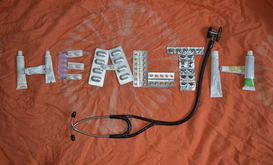Keeping Backyard Poultry
Center for Disease Control News | June 19, 2017
CDC, USDA, and several states are investigating eight outbreaks of human Salmonella eight outbreaks of human Salmonella infections linked to live poultry in backyard flocks. These outbreaks are a reminder to always wash hands thoroughly with soap and water right after touching live poultry.
Live poultry, such as chickens, ducks, geese, and turkeys, often carry germs such as Salmonella. After you touch a bird, or anything in the area where birds live and roam, wash your hands so you don’t get sick!
Owning backyard chickens and other poultry can be a great experience. However, children and other groups of people have a greater chance of illness from handling live poultry or anything in the area where they live and roam. Even handling baby birds displayed at stores can cause a Salmonella infection. Keep reading to learn about the steps you can take to stay healthy around live poultry.
How do people get Salmonella infections from live poultry?
Live poultry might have Salmonella germs in their droppings and on their bodies (feathers, feet, and beaks), even when they appear healthy and clean. The germs can get on cages, coops, feed and water dishes, hay, plants, and soil in the area where the birds live and roam. Germs also can get on the hands, shoes, and clothes of people who handle or care for the birds.
People become infected with Salmonella germs when they put their hands or equipment that has been in contact with live poultry in or around their mouth. Young children are more likely to get sick because their immune systems are still developing and they are more likely to put their fingers or pacifiers and other items into their mouths. Some people who have contact with items, like coops or water dishes, in the area where poultry live can get sick without actually touching one of the birds. Germs on your hands can spread easily to other people or surfaces, which is why it’s important to wash hands immediately with soap and water after touching poultry or anything in the area where they live and roam.
 SantaFeToday.com Santa Fe’s Hometown News
SantaFeToday.com Santa Fe’s Hometown News

